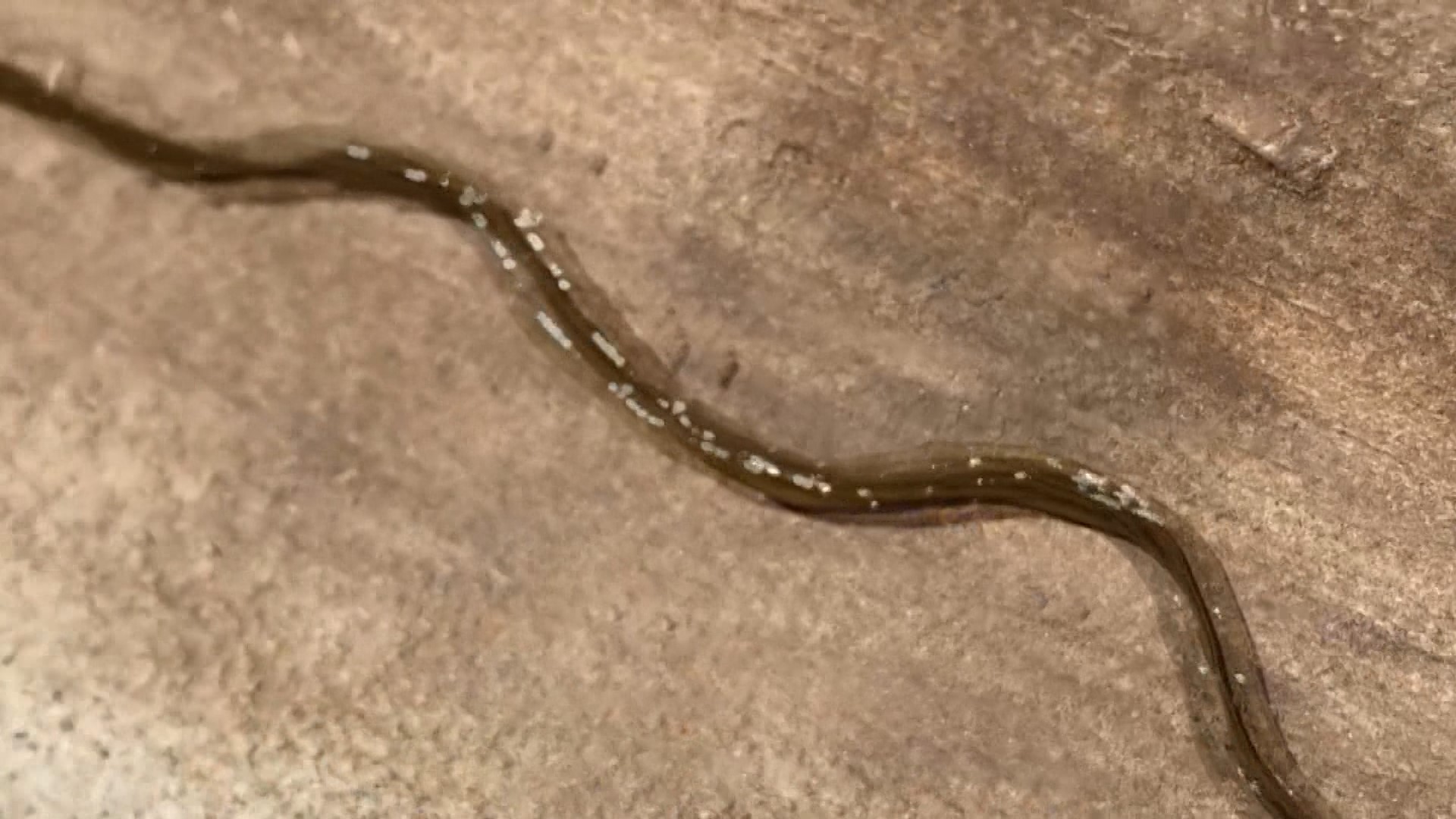HUNTSVILLE, Alabama — Hammerhead worms are an invasive flatworm that showed up in the 1900s from Southeast Asia. Auburn University Insect Diagnostician Dr. Meredith Schrader said individuals typically encounter them, at night after a rainstorm. "It's so large and people aren't accustomed to seeing them, they can be quite shocking when you do encounter them." In addition,".. they come out in the moist area looking for food, which is other earthworms."
Hammerhead worms typically mind their own business by staying in leaf litter gardens. "They're here to stay. They're expanding their range. They are commonly found in the South Eastern United States, where we have the high temperatures, lots of humidity and moisture. They are moving westward into Texas. Typically, they avoid cold weather and dry weather. So when we start getting into June, July and our rain disappears and we get those hot, dry, drier days, the chances of encountering them are going to decrease," Dr. Schrader explained.
So what should one do, if they are to come across a hammerhead worm? "There's not any reporting that needs to go to the department of ag or higher ups, but definitely let your neighbors know that you've encountered them and also to let them know to squish them. You don't want to chop them up because that just creates a whole bunch of little baby worms, because that's one way that they do reproduce. We've had reports of them all across the state. I've gotten some reports near Mobile and Birmingham. So pretty much, you know, the the range of Alabama, I haven't heard anything from Huntsville area yet," she continued.
Furthermore, these worms are very also distinctive ."Typically they're when people tend to notice them, there are a lot large, long, skinny worms. They're tan and color with stripes, these long longitudinal stripes on their bodies," said Dr. Schrader.
Lastly, the important thing to note is that they are harmless to people, and it's probably not the best idea to keep them as pets. "There's a toxin that is emitted on their bodies. so that would be something to tell your neighbors that because of that toxin, you know, let them know it's around. Don't let toddlers handle them. As an extra caution if you have sensitive skin. Definitely don't touch it. That's the best advice I would think, is it's not necessarily going to be a medical emergency. But if you can avoid touching them, I would," she iterated.

